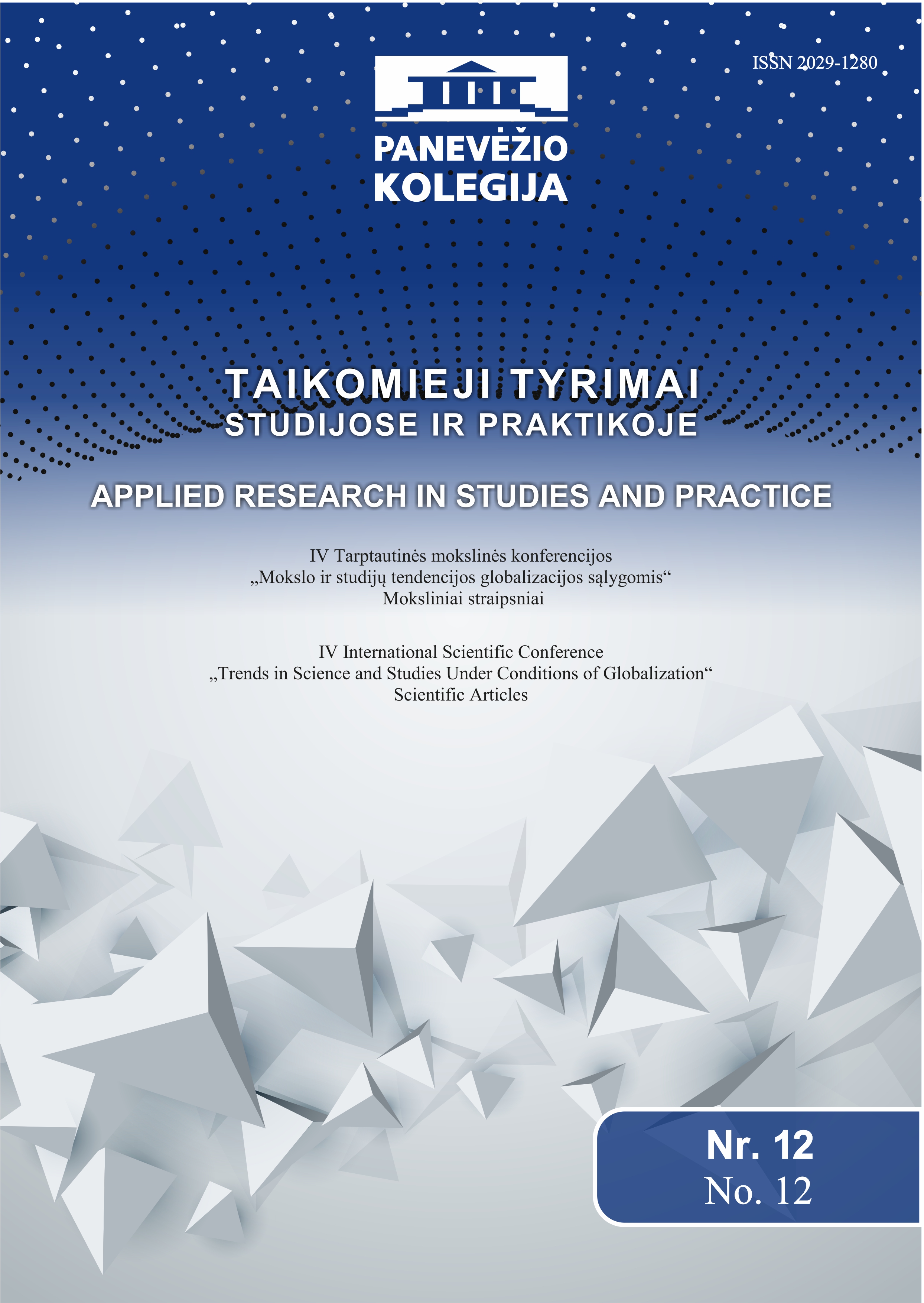Profesinio rengimo poreikio ir veiklų, organizuojant profesinį rengimą priklausomybių reabilitacijos bendruomenėse, teoriniai aspektai
Theoretical Aspects of Vocational Training Requirements and Activities, When Organizing Vocational Training in Rehabilitation Communities
Author(s): Birutė Šilėnienė, Neringa DaujotienėSubject(s): Social Sciences, Education, Vocational Education, Welfare services
Published by: Panevėžio kolegija
Keywords: professional preparation;the community of rehabilitation;
Summary/Abstract: Vocational training may not be the only one way to integrate people with addictions to the labor market, but also as a rehabilitation tool. From here comes the question: What are the essential professional training organization features in rehabilitation centers in Šiauliai area? The object of research is vocational training organization in addictions communities. The aim of the research is - theoretically substantiate questions of vocational training and overview its possibilities in rehabilitation centers of Šiauliai area. In order to achieve the objective of the study, following methods are used: scientific literature and document analysis, comparison and generalization.Basic vocational training objectives are the following: to help a person to acquire skills and competencies in line with modern scientific, technological, economic and cultural level; to help them establish themselves and compete in the changing labor market and ensure country's economic progress, international competitiveness and sustainable development; allow to achieve different needs and skills for lifelong learning, improving and changing qualifications; ensure access to vocational training and quality. In recent years, the increasing use of psychoactive substances among the youth and working age persons is recognized as social phenomenon, a threat to the public. Persons addicted to psychoactive substance use, problems occur in all areas of life. Vocational education and training in the context of the individual person and meets certain target groups of people (eg. training organized in prisons, rehabilitation centers, etc.), and becomes one of the vocational training components known as vocational rehabilitation.Scientific literature and Lithuanian and foreign institutions of professional information and guidance governing document analysis suggests, that these legal provisions are related to the professional organization of basic functions, and four training elements can be divided: 1) the professional information, 2) guidance, 3) vocational counseling and 4) vocational training. They are oriented to the necessary information, knowledge and skills giving individuals seeking to successfully integrate into the labor market, the unemployed retrain and improve their professional skills. It is emphasized that the vocational training system should be more flexible and provides more opportunities for people with socialization and health problems.The primary goal of addiction rehabilitation community is to help the dependent person not to use psychoactive substances and to integrate into society. Consistent, focused on mutual trust and cooperation based on educational, consultative and corrective actions help shape a young person or an adult for a positive work motivation, to identify the prevailing personal interests, needs to know and assess their actual knowledge, abilities, skills and leads to professional self-determination.Rehabilitation center staff is living together with people that are receiving drug treatment, engage in individual and group relapse prevention counseling, working on adapting the person to the most appropriate treatment, forms of daily living skills, organizing training and professional preparation, helping to find housing and move, giving further assistance. These services are often based on the number of groups for mutual support. People living in such centers pass several stages of rehabilitation, they are formed by individual plans that can be implemented on the assistance of consultants, assisted in the rehabilitation and structured to receive a proper education by attending courses or other training at the scheduled time.After analyzing active addiction rehabilitation centers in Šiauliai region (charity fund Agapao and Lithuanian Christian charity and compassion fund "Samaria") activities of professional information, consulting and training aspects of it can be said that addiction rehabilitation communities are diverse activities (vocational information and counseling classes, training, projects internally and with foreign partners), allowing for addicts to overcome their problems and successfully integrate into today's labor market. For a person, who is going through rehabilitation process, it is extremely important to acquire a profession or to change it, because it will help him get back into the labor market. It should be noted that the successful development of these organizations is impossible without the project work. Such project activities were: social, psychological, general services, computer literacy courses, English language training, training evaluation, counseling and vocational information and guidance assistance; professional skills development: painter, bricklayer, tile layer, plasterer, pavement fitter, horticulture specialist, small plantation overseer professional skills. Great attention is paid to disadvantaged families, children and single elderly people (events, seminars, summer camps). After the problem of domestic violence became visible, help was provided to women who are victims of such matter.
Journal: Taikomieji tyrimai studijose ir praktikoje
- Issue Year: 12/2016
- Issue No: 1
- Page Range: 115-124
- Page Count: 10
- Language: Lithuanian

